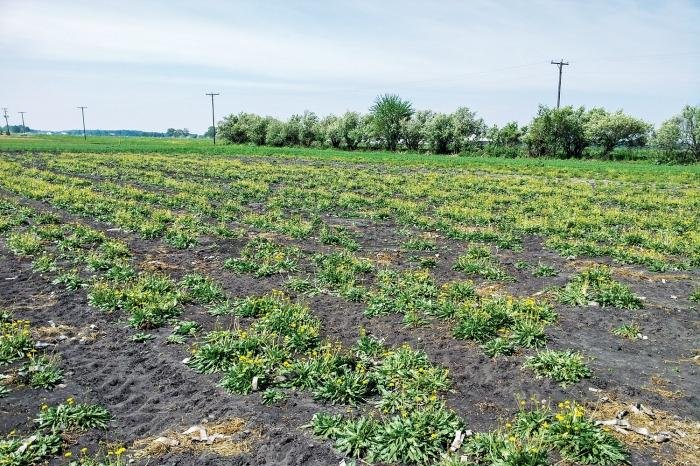Researchers at Ohio State are trying to turn the lowly dandelion into a sustainable source of rubber. Photo by Katrina Cornish/Ohio State University
COLUMBUS, Ohio, July 27 (UPI) -- Scientists have developed a dandelion strain with natural rubber in its roots. The summer weed that invades suburban lawns could be the next rubber tree.
Researchers are working to improve the weed so that it can be produced fast and efficiently enough to be a sustainable source of rubber.
Only 10 to 15 percent of the dandelion's roots are rubber, making the crop much less efficient than the rubber trees grown on Southeast Asian plantations. But the rubber trees of Thailand, Indonesia and Malaysia take years to mature, making it difficult for farmers to react to the ebb and flow of the market and meet surges in demand.
Rubber tree cultivation isn't the most eco-friendly industry. It's blamed for deforestation in some of the planet's most biodiverse regions.
Rubber-yielding dandelions could potentially be cultivated in a wider array of habitats, allowing rubber to be produced closer to where it's needed and cutting down on the cost of energy-intensive transportation.
Tire companies and other businesses are interested in a cheaper, more sustainable rubber source.
But scientists are still trying to perfect the strain of dandelions -- dubbed Buckeye Gold by its inventors at Ohio State University -- to make it economically viable. Currently, researchers are trying to make the crop less vulnerable to disease and better able to withstand herbicides and pesticides.
Scientists at Ohio State are also working to improve the process that extracts rubber from the root fibers.
It will be for naught, researchers say, if they can't get farmers growing the weed.
"There are embedded interests in the crops we already grow," researcher Katrina Cornish told Chemical & Engineering News. "Without farmers growing it, there are not farmers lobbying for it."
Farmers won't start growing dandelions unless they're confident of the profits it will yield. That means Cornish and her colleagues, as well as partners in the rubber industry, must also come up with secondary markets for the non-rubber parts of the dandelion.















